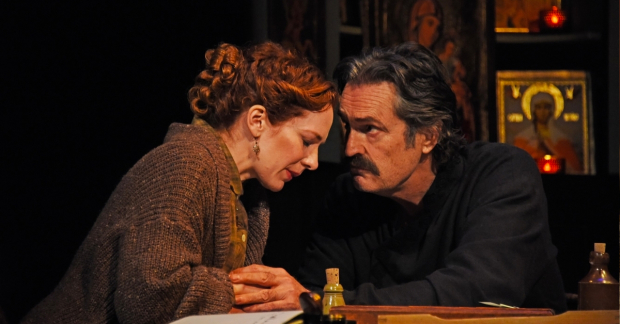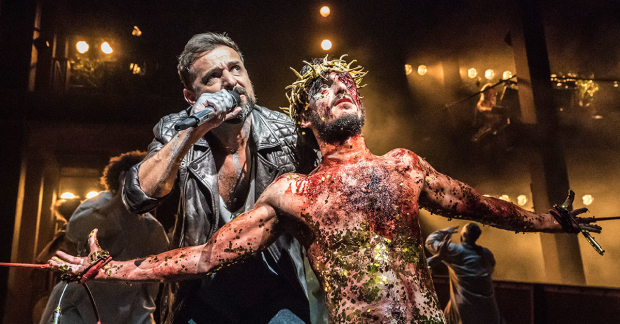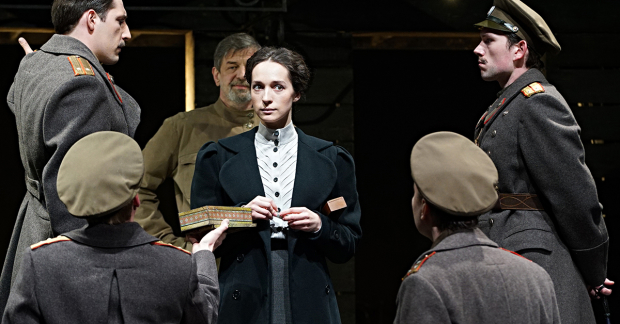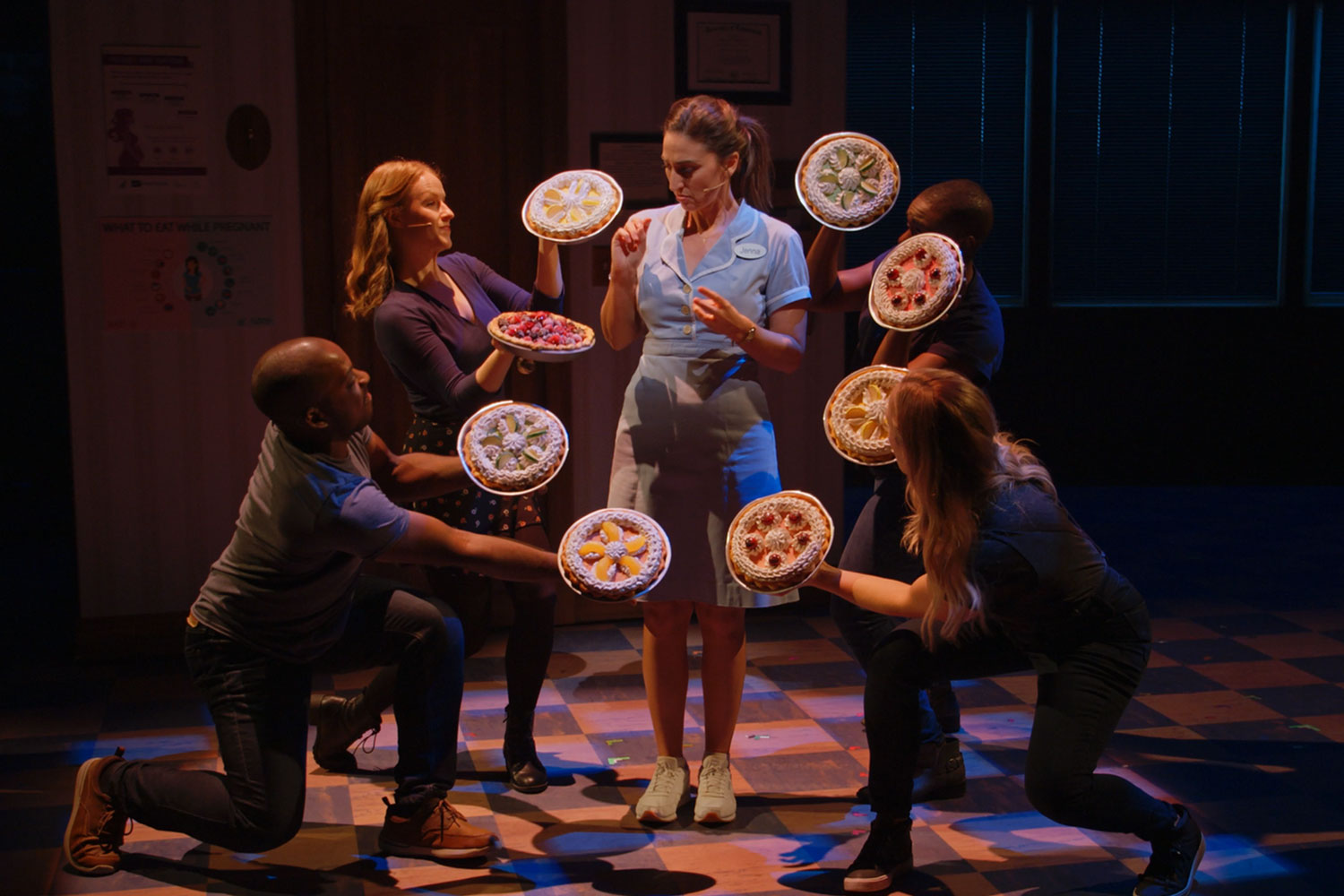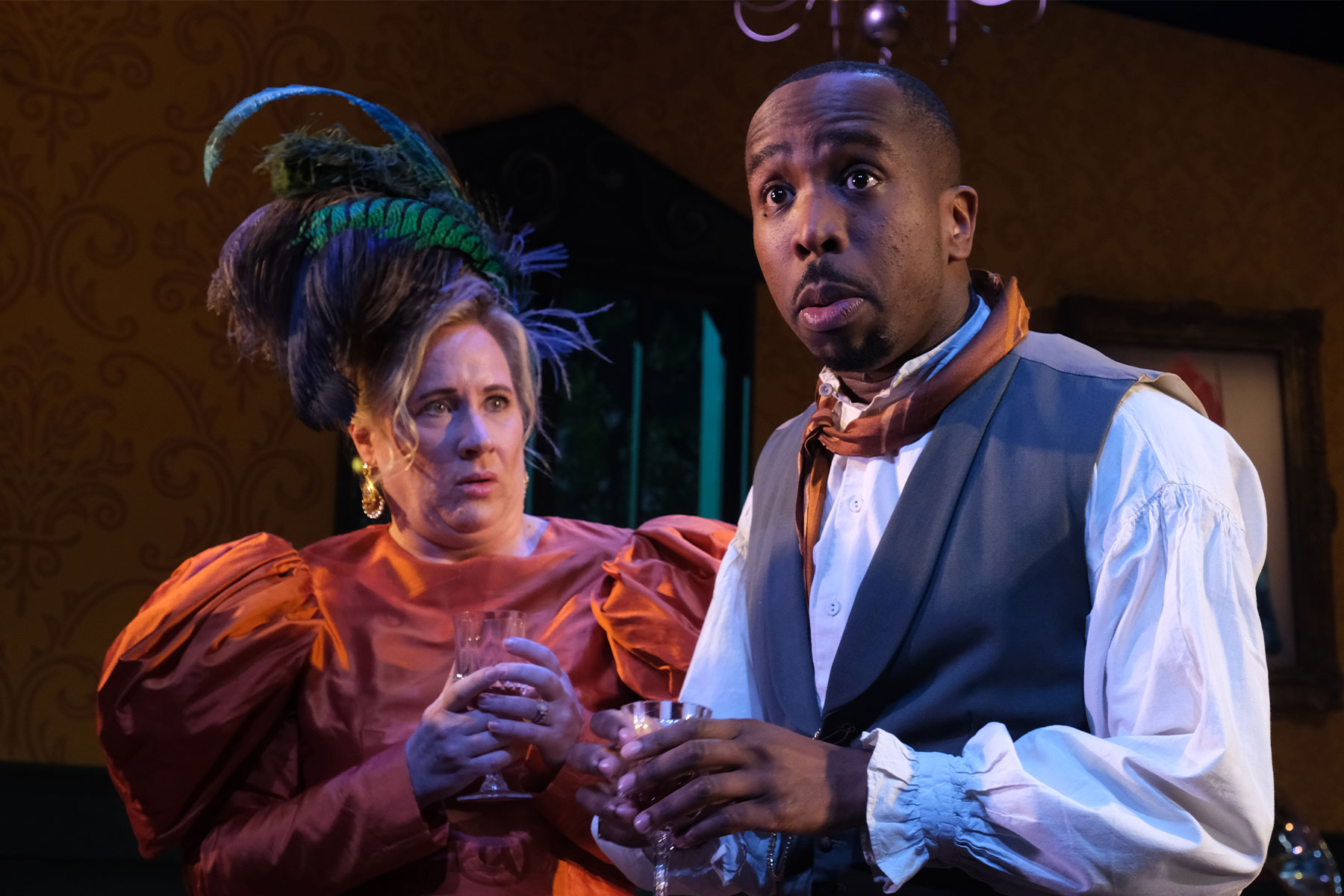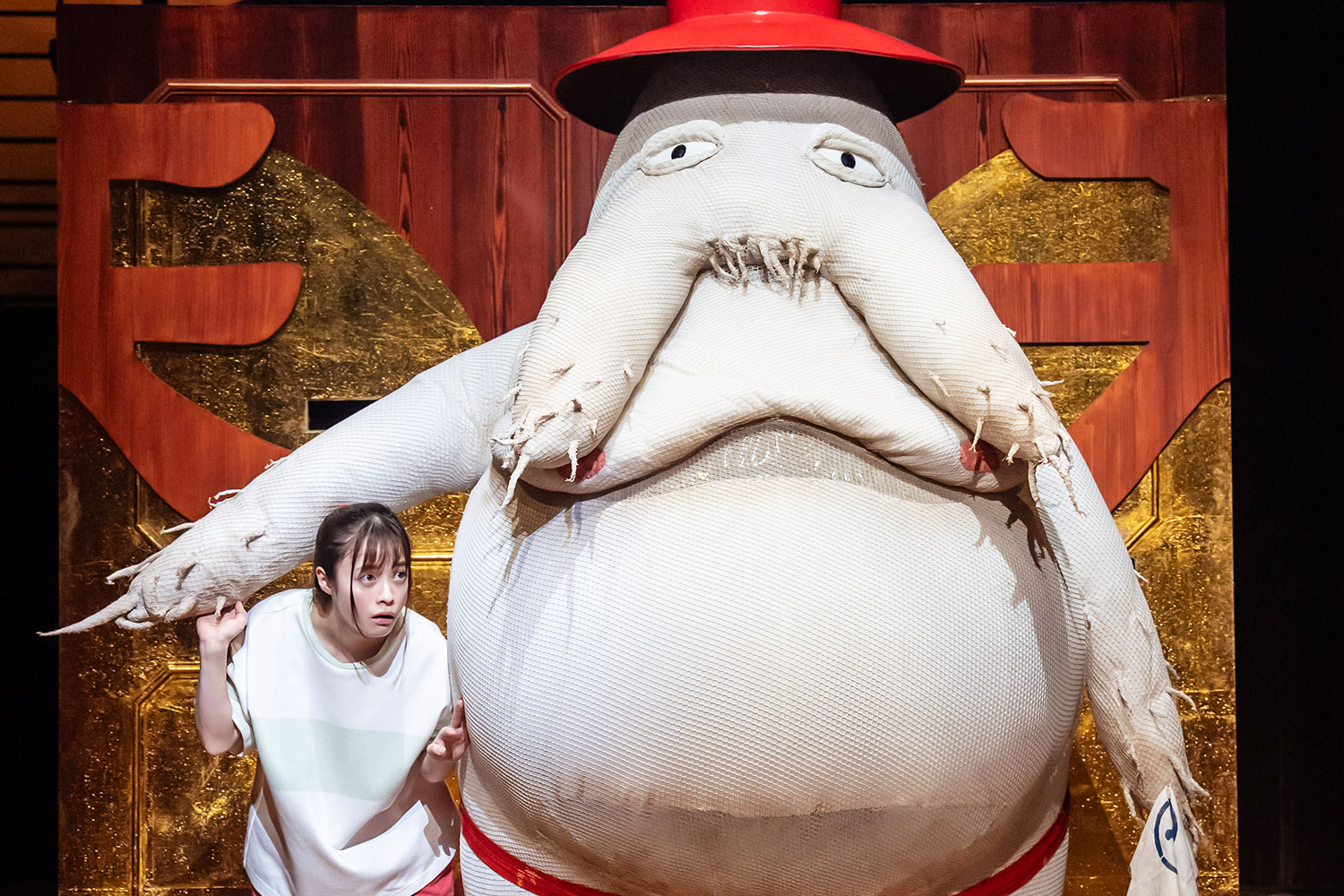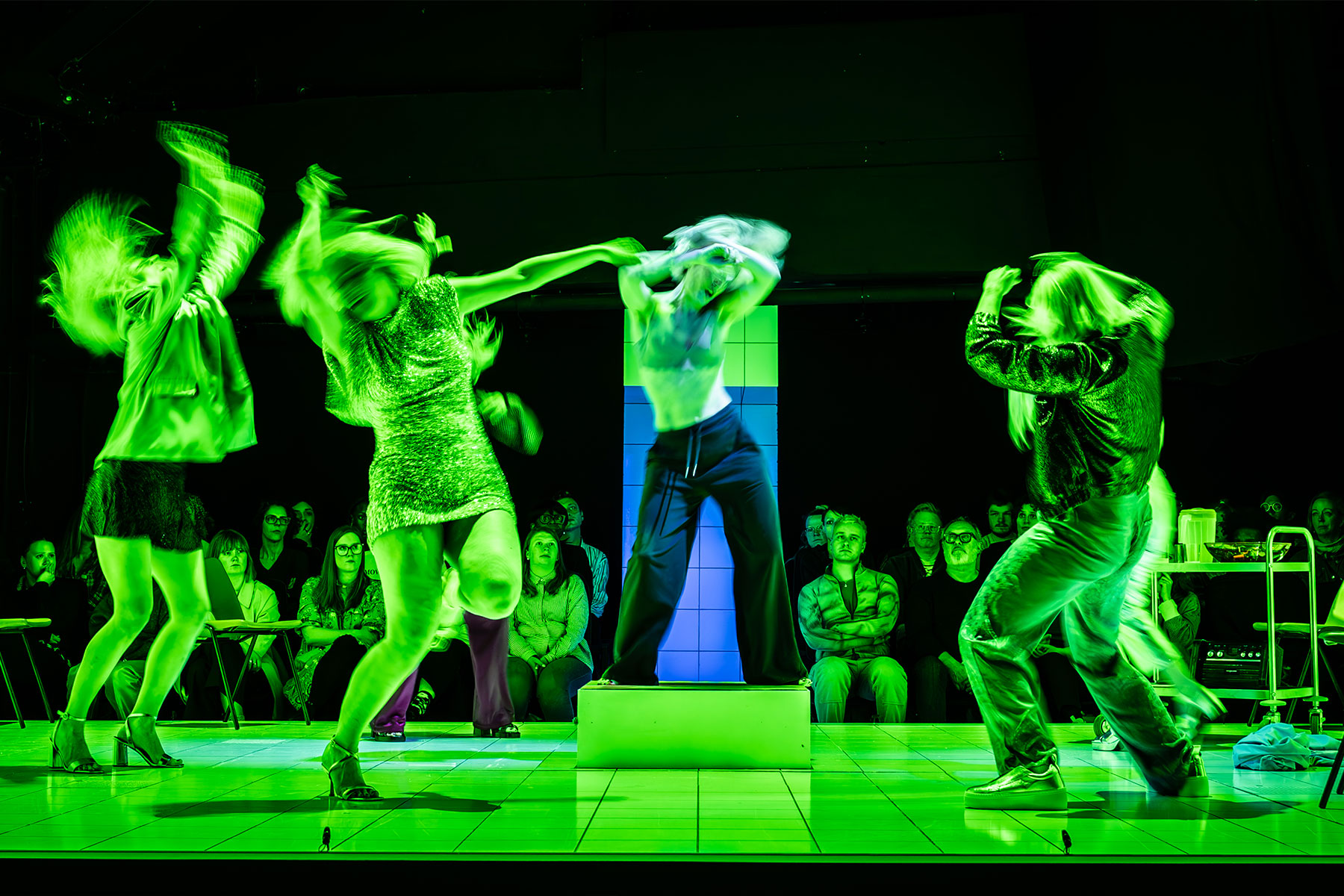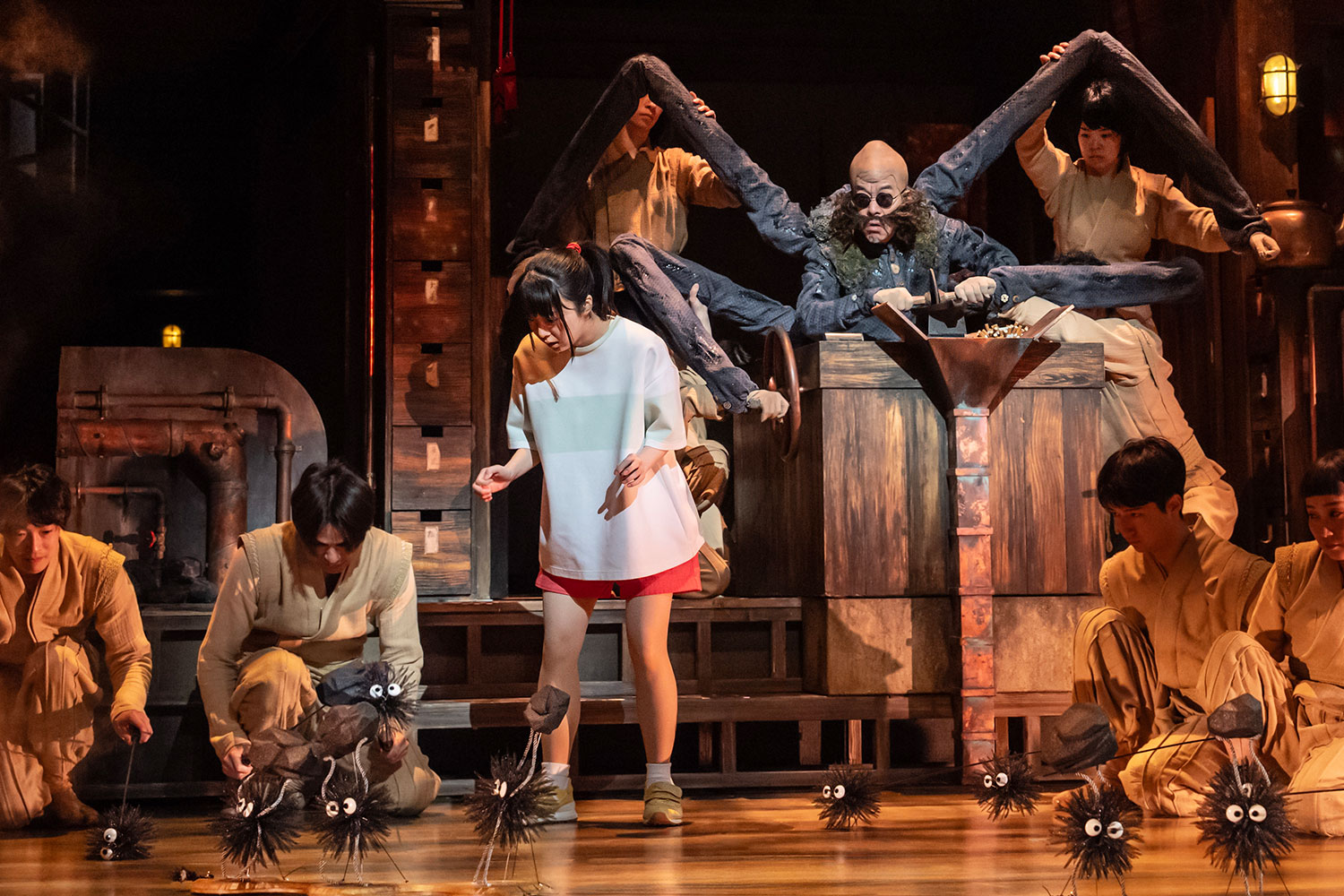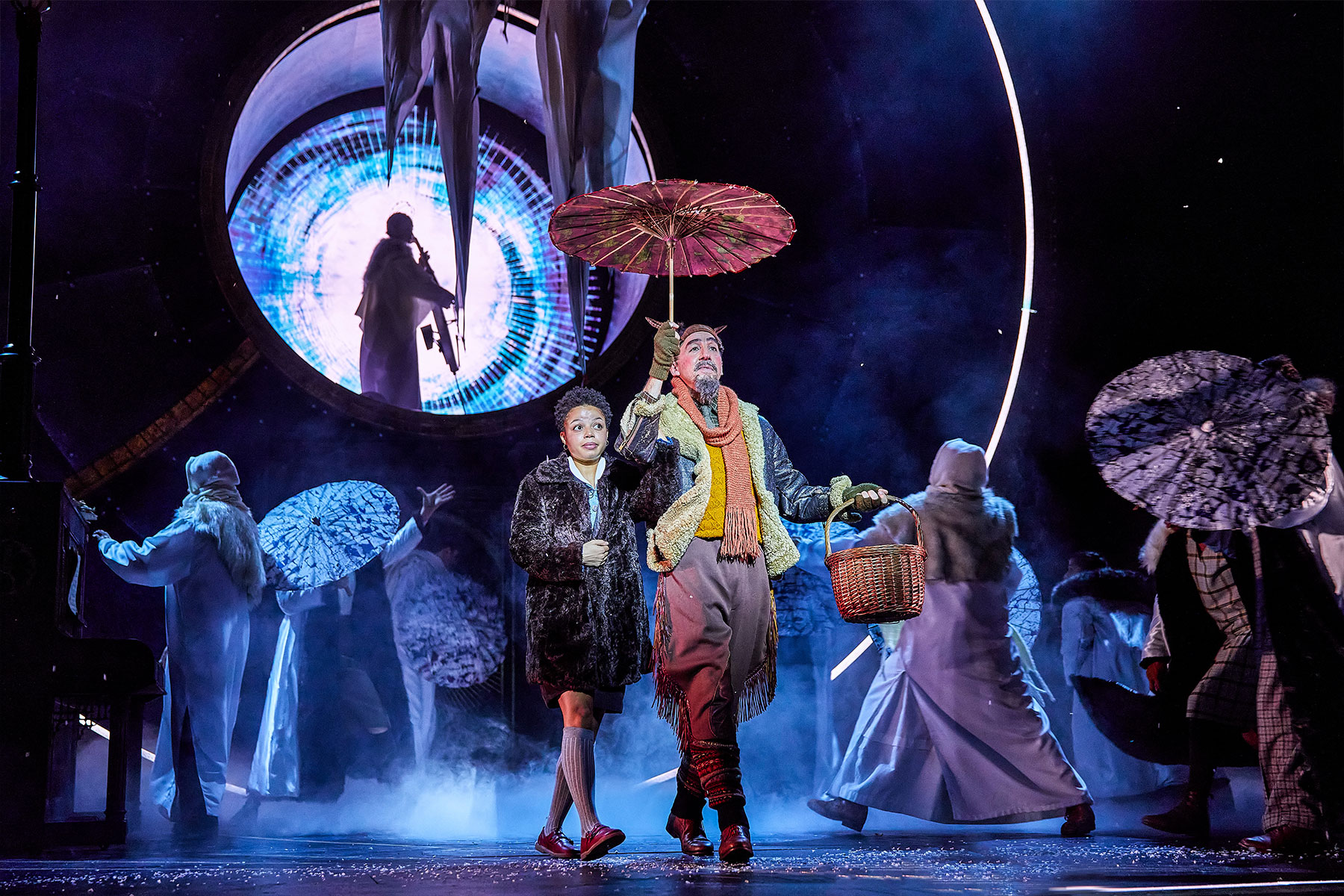Review: Shukshin's Stories (Barbican Theatre)
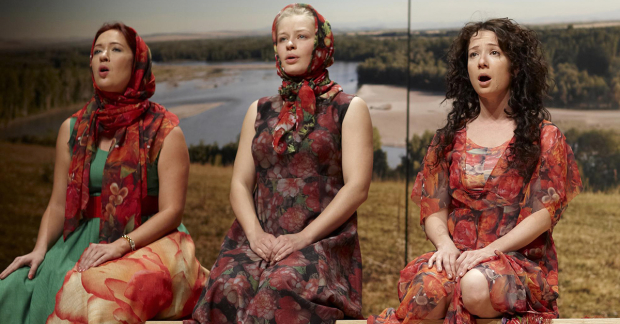
© Sergey Pertov
Vasily Makarovich Shukshin is not a familiar name to British audiences, but this introduction to the Soviet-era writer's short-story telling prowess from the wonderful Moscow-based Theatre of Nations company is very welcome. He's a man to spend time with, and to enjoy.
His stories, published between the 1950s and his sudden death (as an actor and director he was making a film at the time) in 1974, are set in the Altai region of Siberia. It's a place where, the actors tell us, the sunflowers grow so high they stop you seeing the people. They sit in front of photographs of sunflowers on a long bench, and two women eat and spit sunflower seeds during the telling of the first story about a lorry driver who falls in love with a town girl.
This sets the tone for everything that follows. In director Alvis Hermanis' brilliantly simple production, the performers sit and move around four long gym benches, dressed in colourful 1970s clothes, in front of pictures of the current inhabitants of the village they are describing. They have remarkable physical skills and are fantastically funny, building entire worlds with precise gestures.
The lorry driver, in an over-sized suit, shrugs his big shoulders and makes tiny steps on his heels as he walks towards his putative fiancée. His grandfather lies on top of the stove, shouting out advice. In the next story, four men sit joshing and joking at the far end of the bench as a worker decides to buy a pair of impractical white boots for his wife, circling the objects as a fierce shop girl looks on, his joy and confusion passing in waves across his face.
The stories have the vividness of fables, etched with the grooves and tears of real life. As the evening progresses, the stories lengthen, and the mood grows more sombre. The pace is sometimes too relentlessly similar, but the tales hold the attention.
My favourite was one about a man who loved his independent nurse of a wife even though his friends warned him he was wicked. The swishing beauty of the woman as she teeters along the bench in her silk dress and skinny heels, the delighted way he extends his arms and then curls her into a ball to protect and adore her, his despair and disillusion when he discovers his friends are right, add up to a perfect portrait of obsession and betrayal. Feast followed by hangover, is how he describes it; and the hangover is worth having.
You begin to see how Shukshin wrote in a difficult period of Russian politics without being much censored; his gaze is so firmly fixed on human foible that it doesn't rise to bother the authorities. Themes emerge, most notably the troubled relationship between men and women (in which the men are generally treated more sympathetically), a longing for home, for the village, for the land; an understanding of the strange sparks of emotion that tie people together even if they don't understand what they are.
All the stories are enacted with precision and flair; there is real joy in watching this company at work, with a freedom of gesture and a speed of speech that comes from deep understanding of each other and the work (later this week they are staging Chekhov's Ivanov, which is sure to be a treat.) But the evening was spoilt for me by the fact that the position of the subtitles made them hard to read while watching the actors at the same time and – more importantly – by the fact that they seem to have been run through Google Translate. They are often behind the action and clunky in a way that I suspect – from the delighted roars of laughter from Russian speakers around me – Shukshin is not.




